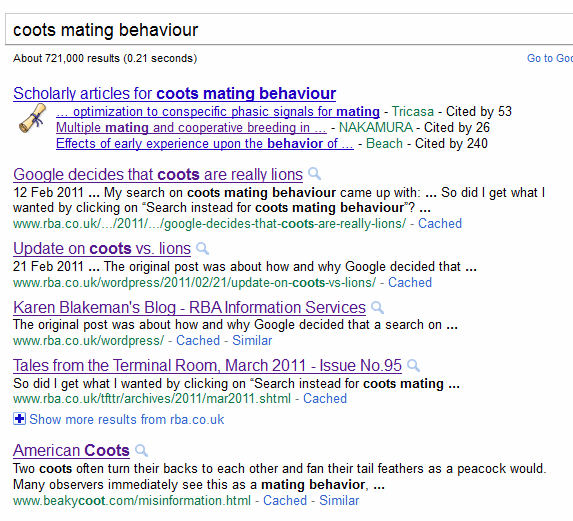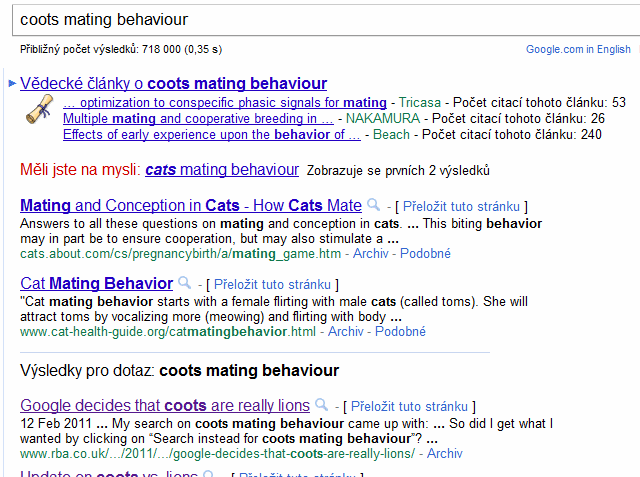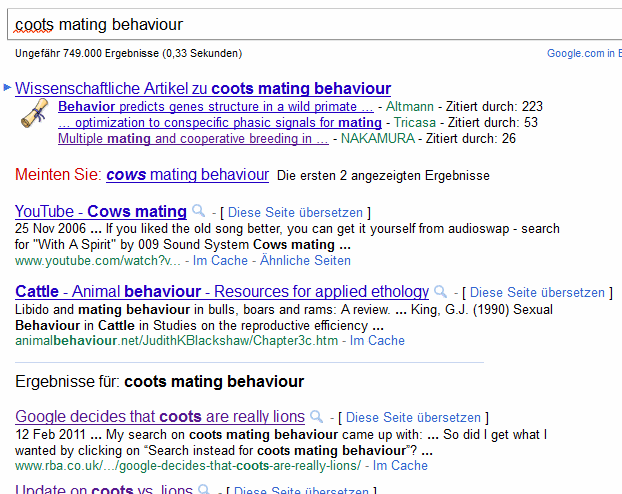This week I was in Kent running a full day workshop on using Google for search. The participants came from a variety of subject backgrounds and interestingly their Top Tips have a slight technical bias.
1. Preview. Click on the magnifying glass next to an entry in your results list to see a preview of the page highlighting areas containing your search terms
2. Google Trends. http://www.google.com/trends Enter up to five topics and see how often they’ve been searched in Google over time and in different geographic regions. This is a way of identifying how people are searching on a subject. Several workshop participants also explored the Websites option: enter a web site URL and see what other sites people visited. This can be useful if you are not sure about the main sites that cover a subject and want to expand your search from the one you have already found; for example enter moveto.co.uk and a list including other UK online estate agent sites appears. It was interesting to see that typing in a UK university web site came up with job and CV pages!
3. Take control. A tip that has been proposed in other workshops – sometimes along the lines of “Don’t let the ******s grind you down!”. Switch off targeted advertising by going to http://www.google.com/ads/preferences/. Log out of your of your Google account so that you are not bombarded with tweets and other stuff from members of your social networks. Use advanced search commands and the side bar on the results page to focus your search.
4. Timeline and time restriction options in the results page side bar for the most recent news but also for historical information.
5. Public data explorer. http://www.google.com/publicdata/home There was a lot of interest in this but some of the participants wanted to merge data sets from different sources, which led them to….
6. Fusion tables. http://www.google.com/fusiontables/Home “Merge data from multiple tables. Visualize your data on maps, timelines and charts.” This in turn led them to ….
7. Google Labs http://www.googlelabs.com/ – lots of interesting experiments including Google Correlate http://correlate.googlelabs.com/
8. For a different perspective, search for pages and sites in other languages using the Translated foreign pages option in the results page side bar.
9. Don’t forget the advanced search commands. It is all too easy to slip into lazy searching habits when everything goes well and results are relevant. If Google starts to do its own thing and comes up with bizarre results then using an advanced search command (e.g. filetype: or site:) or one of the two tips mentioned below usually brings it heel.
10. Two reliable standbys for getting out of a search rut or forcing Google to give you different results: repeat your main term(s) to change your results (sometimes radically), and/or change the order of your terms in your search strategy.
(Some of my recent Google and search workshop presentations and notes can be found at http://www.rba.co.uk/as/)


